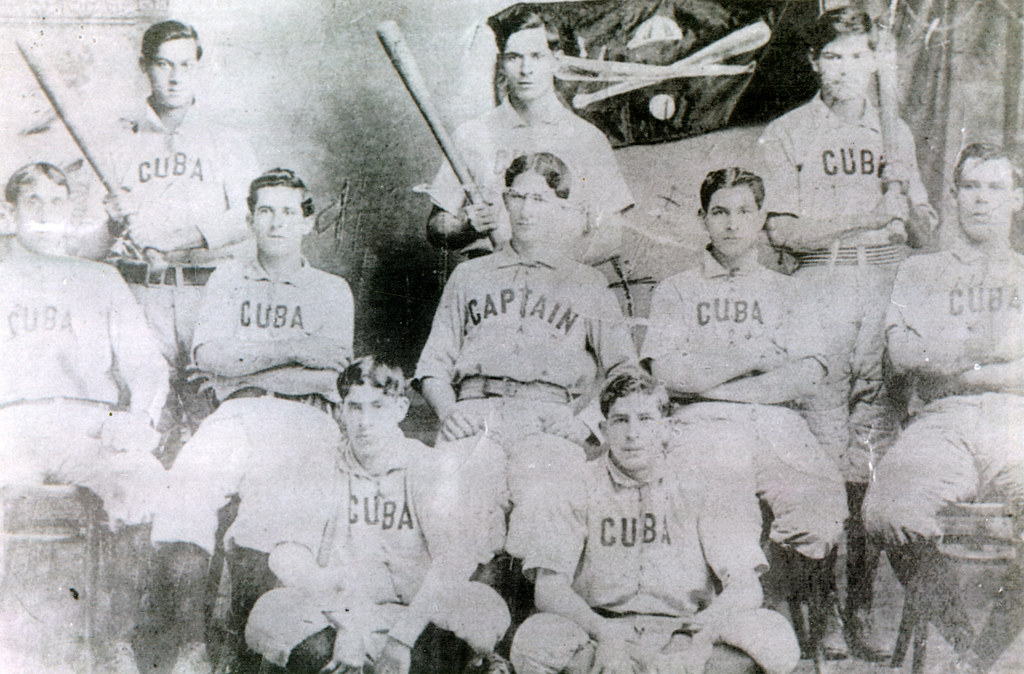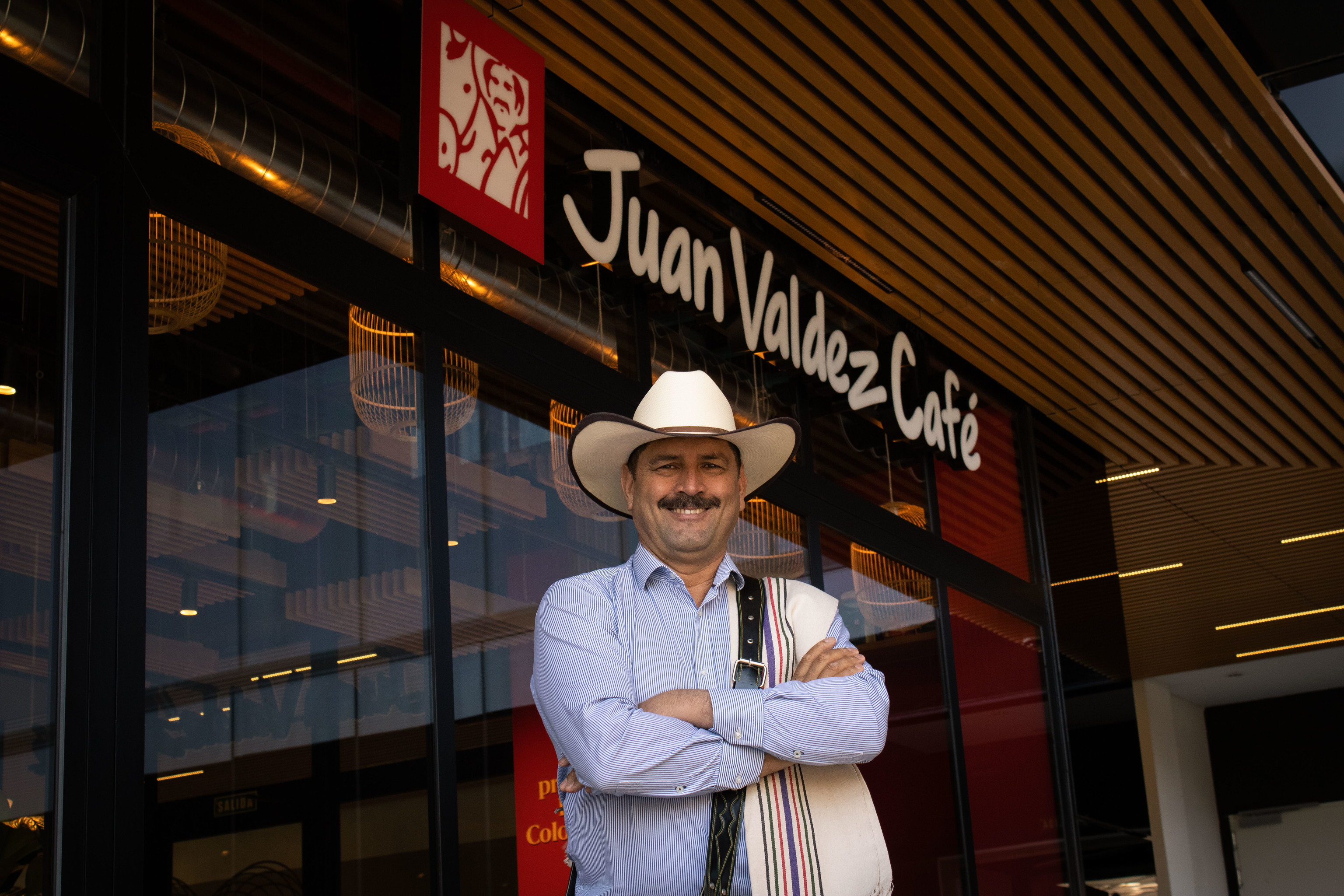
The world of golf, and indeed the broader landscape of sports and philanthropy, mourns the passing of Juan “Chi Chi” Rodriguez, who died on Thursday at the age of 88. His death was announced by the PGA Tour, marking the end of an era for one of the game’s most vibrant and beloved figures. Rodriguez was not merely a golfer; he was a phenomenon, a charismatic force who broke the mold of a sport often perceived as staid and reserved, transforming it into a grand stage for his unique blend of athletic prowess and captivating entertainment. His legacy, however, extends far beyond the fairways, touching countless lives through his unwavering dedication to helping others.
Rodriguez’s journey was one of remarkable resilience and profound impact, characterized by an infectious spirit and a deep-seated commitment to giving back. From his impoverished childhood in Puerto Rico to his celebrated career on the PGA and Senior Tours, he cultivated a persona that endeared him to millions, bringing laughter and inspiration wherever he went. Yet, beneath the flamboyant antics and witty observations lay a man driven by a powerful sense of empathy, forged in the crucible of his own challenging beginnings. This article embarks on an in-depth exploration of the life and times of Chi Chi Rodriguez, a champion whose influence resonated both on and off the course, leaving an indelible mark on the hearts of fans and the fabric of his community.
His story is a testament to the power of passion, perseverance, and the profound joy of sharing one’s gifts with the world. We remember Chi Chi Rodriguez not just for his eight PGA Tour victories or his 22 Senior Tour titles, but for the indelible spirit he brought to every moment, the humanity he extended to every individual, and the enduring foundation he built to uplift future generations. As we reflect on his extraordinary life, it becomes clear that his was a legacy woven with threads of genuine warmth, competitive fire, and an unparalleled commitment to making the world a brighter place.

1. **Humble Beginnings and Early Life in Puerto Rico**Juan Antonio Rodriguez Jr. was born on October 23, 1935, in Rio Piedras, Puerto Rico, the youngest of six children. His early life was marked by extreme poverty, a circumstance he often spoke of with both humor and profound sincerity. This difficult start shaped his perspective, instilling in him a deep understanding of hardship and a lifelong desire to alleviate it for others. He famously quipped, “I was poor when I was starting out. I mean, I had a room so small I couldn’t even change my mind,” a testament to the conditions he endured.
The challenges of his youth were stark; at just four years old, he nearly succumbed to vitamin deficiencies. By the age of seven, he was already contributing to his family’s meager income, toiling alongside his father, Juan Rodriguez Sr., in the arduous sugar cane fields, where a machete earned them mere dollars a day. These formative experiences cultivated a resilience and work ethic that would define his entire life, fueling his ambition and his enduring compassion for those less fortunate. His profound statement, “I love kids because I never was a kid. I was too poor to be a kid,” encapsulates the driving force behind his future philanthropic endeavors.
His father’s own generosity, despite their dire circumstances, served as a powerful inspiration for young Chi Chi. Witnessing his father’s willingness to help those who had even less than their family instilled in him a foundational value of humanitarianism. This early lesson in empathy would later blossom into a significant part of his public identity, demonstrating that even in the face of scarcity, the spirit of giving could thrive. The foundation of his compassionate character was laid during these demanding years in Puerto Rico.
Read more about: From Struggling Homeowners to Airbnb Empire: How One Couple Quit Their Jobs and Made $30k-$60k a Month

2. **Self-Taught Golfer and Path to Professionalism**Rodriguez’s introduction to golf began at the tender age of eight when he started working as a caddie at a local course frequented by affluent tourists. This exposure, however, was not merely a job; it was a doorway to a new world. With no formal training or expensive equipment, he embarked on a remarkable journey of self-instruction, teaching himself the intricacies of the game through ingenuity and sheer determination. He would fashion golf clubs from guava tree limbs, using them to propel crushed tin cans into holes he had painstakingly dug on nearby baseball fields.
His natural talent and relentless practice quickly bore fruit. By the astonishing age of twelve, Rodriguez had already achieved a score of 67 in a legitimate game of golf, a feat that hinted at the prodigious skill lying dormant within him. His aspirations, even then, were immense. He once shared with Sports Illustrated, “They told me I was a hound dreaming about pork chops,” vividly illustrating the skepticism he faced as a small, poor Puerto Rican boy daring to dream of professional golf amidst a sport dominated by a different demographic. This early ambition would become a cornerstone of his professional drive.
After serving his country in the U.S. Army from 1954 to 1956, Rodriguez returned to Puerto Rico with a clear vision: a career in golf. He took on the role of assistant professional at the prestigious Dorado Beach Resort, a position that allowed him to further hone his burgeoning skills. It was during this period that a pivotal opportunity arose when Laurance S. Rockefeller, the developer of the property, recognized his potential and provided him with a crucial $12,000 stake. This generous financial backing proved instrumental, helping to finance Rodriguez’s initial foray onto the highly competitive PGA Tour and transform his dream into a tangible reality.

3. **Joining the PGA Tour and Early Career**In 1960, Chi Chi Rodriguez officially joined the PGA Tour, stepping onto a professional stage that would soon become synonymous with his electrifying presence. Despite his diminutive physical stature, standing at 5-foot-7 and weighing a mere 120 pounds, Rodriguez quickly demonstrated that his impact on the game would be anything but small. He defied conventional expectations, proving that power and precision were not solely the domain of larger players. His strong hands and wrists were instrumental in generating long, low drives that often surprised his competitors, underscoring a unique physical advantage that belied his size.
His skill set was remarkably balanced, compensating for any perceived weaknesses with undeniable strengths. While his putting game could sometimes be “balky,” as noted in reports, his proficiency as an outstanding wedge player often allowed him to recover and save pars, keeping him competitive in challenging rounds. This combination of powerful drives and a deft short game made him a formidable opponent, capable of dazzling crowds with his versatile play. His ability to hit the ball with such force was particularly noteworthy, earning him accolades from even the sport’s legends.
Jack Nicklaus, in a 1964 interview with Sports Illustrated, famously observed, “For a little man, he sure can hit it,” recounting instances where Rodriguez frequently outdistanced him off the tee on flat, into-the-wind fairways. This remark from one of golf’s all-time greats highlights the sheer power and efficiency of Rodriguez’s swing. He became a fan favorite almost immediately, not just for his skill but for the palpable energy and excitement he brought to every tournament. His entrance onto the professional circuit marked the beginning of a distinctive and influential career that would captivate audiences for decades.

4. **His Distinctive Theatricality and Showmanship on the Course**Chi Chi Rodriguez’s flair on the golf course was legendary, transforming staid golf tournaments into vibrant spectacles of athletic grace and theatrical charm. His flamboyance was not merely an act; it was an integral part of his persona, a genuine expression of his philosophy that “Golf is show business. I love to make people laugh.” This approach endeared him to galleries, who flocked to watch his every move, eager for the next display of his unique showmanship. His performances were as memorable as his golf shots, making him one of the sport’s most compelling figures.
Among his most iconic celebrations was the tradition of covering the hole with his narrow-brim straw hat after sinking a birdie putt. He would explain, with a twinkle in his eye, that this was “so the birdie doesn’t fly away.” This simple, charming gesture became his trademark, often accompanied by a spirited toreador dance that further captivated the crowds. The hat ritual, he once recounted to People magazine, was inspired by a long-ago game for five cents a hole, where a toad hopped out of the hole, taking his ball with it, leading him to lose the nickel. From then on, he vowed his ball would never escape prematurely, or so the tale went.
Beyond the hat, Rodriguez also developed a more dramatic post-putt routine, especially after draining a difficult shot. He would artfully turn his putter into a simulated sword, unleashing it on an imaginary bull, then wiping imaginary blood from its blade before placing it into an invisible scabbard. This “matador routine” was reserved for significant putts, adding an extra layer of excitement and drama to his game. His chattering with the galleries and these playful antics, while beloved by fans, occasionally caused consternation among some of his more reserved playing partners, highlighting his boundary-pushing approach to golf etiquette.
Indeed, his exuberant expressions sometimes crossed the line for fellow professionals, leading to occasional reprimands. In October 1970, he was fined $200 by the PGA after Dave Hill complained that Rodriguez had distracted him during the Kaiser Open in California. Hill cited Rodriguez’s attempt to amuse spectators by pretending to bat a golf ball with a bunker rake. Despite such incidents, Rodriguez consistently maintained that his intentions were never to disrespect the game, but rather to entertain. Even when asked by former commissioner Joe Dey to stop placing his hat over the hole due to objections from some players, he simply conceived an even more memorable act: the sword routine, further solidifying his reputation as golf’s ultimate showman.
Read more about: Beyond the Stage: 11 Unseen Revolutions That Forged Rock Music’s Soul

5. **PGA Tour Victories and Ryder Cup Representation**Chi Chi Rodriguez’s captivating personality was matched by a highly accomplished career on the PGA Tour, where he secured eight tournament victories. His first professional win came in 1963 at the Denver Open, a significant milestone that not only validated his journey but also underscored his deep family values. With the prize money from this triumph, Rodriguez made a heartfelt gesture, purchasing a house for his mother, a testament to his enduring commitment to his roots and the sacrifices his family had made.
The year following his inaugural victory saw him add two more titles to his burgeoning resume, solidifying his presence as a rising star in professional golf. His subsequent PGA Tour wins included notable events such as the 1964 Western Open and the 1972 Byron Nelson Classic, showcasing his consistent ability to compete and win against the best players of his era. He continued to collect victories through 1979, with his final PGA Tour win coming at the Tallahassee Open, marking a robust two-decade span of competitive success at the highest level.
Beyond individual titles, Rodriguez’s talent and standing in the game earned him a coveted spot on the victorious 1973 U.S. Ryder Cup team. Representing his country on such a prestigious international stage was a highlight of his career, demonstrating the respect and recognition he had garnered from his peers and the golfing establishment. This team participation further cemented his status as one of America’s leading golfers, contributing to a celebrated moment in Ryder Cup history. His contributions extended beyond mere participation, bringing his unique energy and skill to a unified national effort.
Rodriguez also made a remarkable statement during the 1981 U.S. Open at Merion Golf Club, where he achieved his best performance in a major, finishing tied for sixth. Before the final round, he publicly pledged to donate his prize money to Mother Teresa if he won the championship. While he did not ultimately claim the title, this powerful gesture resonated deeply, illustrating his conviction that golf’s grandest stages could serve as platforms for inspiring charitable deeds. It was a profound demonstration of his character, showing how his philanthropic spirit intertwined with his competitive drive, using his platform to advocate for humanitarian causes.

6. **The Genesis and Growth of the Chi Chi Rodriguez Youth Foundation**Rodriguez never allowed the triumphs of his professional career to overshadow the humble origins from which he came. His early experiences with poverty and his father’s inherent generosity profoundly influenced his life’s trajectory, inspiring him to channel his success into meaningful humanitarian work. A pivotal moment occurred after he visited a Florida juvenile detention center to conduct a golf clinic. Witnessing the struggles of these young people, he made a personal vow to do more, realizing the profound impact he could have beyond the golf course.
This commitment materialized in 1979 with the co-founding of the Chi Chi Rodriguez Youth Foundation. This groundbreaking organization was established with a clear mission: to provide counseling, educational opportunities, and vocational training for disadvantaged students. Rodriguez was not just a figurehead; he was deeply involved, contributing substantially to its funding and dedicating his time and passion to its growth. The foundation was a direct extension of his belief that every child, regardless of their background, deserved a chance at a better life.
The foundation’s efforts were notably innovative for their time, particularly its focus on bringing at-risk kids to a local public golf course for golf instruction, part-time work, and invaluable life skills training. This holistic approach to youth development was truly groundbreaking, predating the launch of The First Tee by nearly two decades. Rodriguez eloquently articulated his philosophy with the poignant statement, “A man never stands taller than when he stoops to help a child,” encapsulating the ethos that guided his philanthropic endeavors. He understood that mentorship and opportunity could be transformative.
Today, the Clearwater complex in Clearwater, Florida, which houses the foundation, has expanded significantly. It now includes a public-private academy that serves students from the fourth to eighth grades, building upon the legacy Rodriguez envisioned decades ago. The foundation’s integration of golf instruction with academic and life skills programs continues to empower young people, providing them with the tools and support needed to overcome adversity and build promising futures. This enduring institution stands as a powerful testament to Chi Chi Rodriguez’s unwavering dedication to the next generation, ensuring his impact lives on far beyond the greens he so famously graced.
Read more about: Robert Redford, Titan of Screen and Purpose, Dies at 89: An Enduring Legacy of Artistry, Activism, and Independent Cinema

7. **Dominance and Enduring Legacy on the Senior Tour**Transitioning to the Senior Tour in 1985, then known as the Champions Tour, Chi Chi Rodriguez experienced a resurgence that further cemented his place among golf’s elite. It was a period marked by an extraordinary display of skill, consistency, and, of course, his signature flair, making him one of the tour’s most captivating figures and top money winners. This new chapter in his career showcased his enduring passion for the game and his ability to compete at the highest level well into his later years, proving that his impact on golf was far from over.
His tenure on the Senior Tour was nothing short of remarkable, yielding an impressive 22 victories, including two major championships. Rodriguez clinched the 1986 Senior Players Championship and followed that triumph with the 1987 Senior PGA Championship, solidifying his reputation as a formidable competitor. The year 1987, in particular, stood out as his greatest professional season, during which he captured an astonishing seven victories, a testament to his renewed vigor and refined game, partly credited to teaching pro Bob Toski, who advised him to “stand taller.”
Beyond the sheer number of wins, Rodriguez also etched his name into the tour’s record books, setting two Champions Tour records that still stand today: most consecutive victories, with an incredible four wins in a row, and most consecutive birdies, achieving eight in succession. These feats underscore not only his exceptional talent but also his remarkable consistency and ability to perform under pressure. His 22 Champions Tour wins are tied for seventh most all-time, a statistic that speaks volumes about the depth and longevity of his competitive spirit and his significant contribution to the Senior Tour’s growth and popularity.
Read more about: Unraveling the Roots of a Legend: Elvis Presley’s Journey Before His Family Began

8. **Esteemed Hall of Fame Induction**In recognition of his profound impact on the sport, both through his competitive achievements and his indelible persona, Chi Chi Rodriguez was inducted into the World Golf Hall of Fame in 1992. This prestigious honor was a testament to a career that transcended mere statistics, celebrating a man who had not only won tournaments but had also won the hearts of millions. For Rodriguez, and indeed for his native land, this induction held particular significance, making him the first — and, to this day, the only — Puerto Rican to achieve such an esteemed distinction.
While his playing record, with eight PGA Tour victories, might not on its own scream ‘Hall of Famer’ to some, the totality of his contributions to the game was undeniably gigantic. His vibrant showmanship revolutionized how golf could be presented, injecting joy and entertainment into a sport often viewed as overly reserved. More profoundly, his unwavering commitment to charity and youth development, particularly through the Chi Chi Rodriguez Youth Foundation, cemented his legacy as a humanitarian whose impact stretched far beyond the fairways. His induction acknowledged this broader, invaluable contribution to golf and society.
Speaking to the profound personal meaning of such accolades, Rodriguez once reflected on receiving the USGA’s highest honor, the Bob Jones Award, in 1989. With characteristic humility and humor, he said, “For a little man like me to receive this greatest award in golf makes me feel 10 feet tall.” This sentiment perfectly encapsulates his spirit, revealing how a man of modest physical stature possessed a towering presence and an even grander heart, always finding a way to connect with people and uplift those around him. The Hall of Fame now proudly displays his hand-selected artifacts as part of its newly reopened exhibit in Pinehurst, North Carolina.
Read more about: Mark James, Visionary Songwriter Behind ‘Suspicious Minds’ and ‘Always on My Mind,’ Remembered for a Profound Musical Legacy
9. **The Personal Narrative Behind His Celebrated Nickname**The name ‘Chi Chi’ became synonymous with golf’s most ebullient showman, a moniker recognized instantly by fans worldwide. Yet, Juan Antonio Rodriguez Jr. was not born with this celebrated name; it was an identity he acquired, a testament to his early inspirations and his deep connection to the athletic heroes of his youth. The nickname was born out of admiration and aspiration, reflecting a young boy’s dreams of a better life through sports.
As a young man in Puerto Rico, Chi Chi idolized a professional baseball player named Chi Chi Flores, a figure who represented the pinnacle of athletic achievement and local pride. It was through this admiration that young Juan Antonio began to be called ‘Chi Chi’ by his friends, a nickname that stuck and ultimately became his professional identity. This connection to baseball highlights his broader athletic inclinations, a path he initially gravitated towards, seeing it as a tangible route out of the pervasive poverty that defined his early years.
His decision to adopt the name, or at least to embrace it professionally, speaks volumes about his character: a proud Puerto Rican who broke barriers and transformed a traditionally staid sport. The nickname ‘Chi Chi’ wasn’t just a label; it was an emblem of his vibrant personality, a nod to his roots, and a symbol of the ‘swashbuckling champion’ who captivated audiences with his unique blend of skill and spectacle. It became an inseparable part of the legend, linking his personal story to his public persona in a way few athletes achieve.
Read more about: What Really Happened? The Enduring Mystery Surrounding Malcolm X’s Assassination in 1965

10. **His Unique Humor and Wry Observations**Chi Chi Rodriguez’s magnetic personality was perpetually underscored by a distinctive and infectious humor, a quality that endeared him to millions and set him apart in the often-reserved world of professional golf. He lived by the philosophy, “Golf is show business. I love to make people laugh,” and he pursued this mission with every swing, every putt, and every perfectly timed quip. His wit, often self-deprecating, offered a window into his experiences and a testament to his resilient spirit.
His childhood struggles were often the fodder for his poignant yet humorous observations. He famously quipped about his humble beginnings, “I was poor when I was starting out. I mean, I had a room so small I couldn’t even change my mind,” a line that evoked both laughter and a deep understanding of his challenging past. Similarly, his profound dedication to children, particularly through his foundation, was encapsulated in the heartfelt yet humorously delivered statement, “I love kids because I never was a kid. I was too poor to be a kid,” revealing the depth of his empathy born from personal experience.
Rodriguez’s quick wit also extended to his competitive persona and the lighter side of the game. He once described himself as “a hot dog pro. That’s when someone in the gallery looks at his pairing sheet and says, ‘Here comes Joe Baloney, Sam Sausage and Chi Chi Rodriguez. Let’s go get a hot dog,’” playfully acknowledging his role as an entertainer. Another memorable observation regarding his occasional struggles on the green was, “I read the greens in Spanish, but I putt in English,” a clever play on words that highlighted his unique heritage and his endearing imperfection.
These wry observations, delivered with a twinkle in his eye and an unmistakable charm, were more than just jokes; they were integral to the persona that made him one of golf’s most beloved figures. His ability to connect with audiences through laughter, even at his own expense, cemented his reputation as a genuine and relatable champion. In a sport where many adhered to a conservative mold, Chi Chi Rodriguez’s humor was a breath of fresh air, making every round he played an unforgettable experience for those lucky enough to be in the gallery.
Read more about: Bucket List Cinema: 14 Certified Fresh Movies You Absolutely MUST See Before You Kick the Bucket

11. **His Resilience in Overcoming Health and Personal Challenges**Beyond the triumphs and the laughter, Chi Chi Rodriguez faced significant personal challenges throughout his life, demonstrating a resilience that was as profound as his competitive spirit. One of the most harrowing occurred in October 1998, when he was hospitalized after experiencing severe chest pains. Despite initial reluctance to see a doctor, he reluctantly agreed, only to be told he was suffering a heart attack, specifically what doctors referred to as “the widow-maker.”
Reflecting on this life-altering event in a 1999 interview, Rodriguez shared his near-death experience, stating, “It scared me for the first time.” He recounted the urgency of the situation: “Jim Anderson (his pilot) drove me to the hospital and a team of doctors were waiting to operate. If I had waited another 10 minutes, the doctor said I would have needed a heart transplant.” With characteristic defiance, he added, “About 50% of the people who get this kind of heart attack die. So I beat the odds pretty good,” a testament to his indomitable will to live and thrive. Following his recovery, he even returned to competition for a couple of years, showcasing his remarkable fortitude.
His resilience was again tested in May 2010, when masked nighttime intruders invaded his home at the El Legado Golf Resort in Guayama, Puerto Rico. Rodriguez, along with his wife, Iwalani, was tied up as the robbers made off with cash and jewels valued at $500,000. This traumatic incident, occurring in his later years, underscored the personal hardships he endured, even after achieving widespread success and acclaim. Despite these deeply unsettling experiences, Chi Chi Rodriguez continued to dedicate himself to his charitable work and maintained his connection to the game he loved, embodying a spirit that refused to be diminished by adversity.
Read more about: 15 Profound Lessons from Those Who Lost Everything and Rose Again: A Guide to Rebuilding Your Life

12. **His Enduring, Deep Connection to Puerto Rico**Chi Chi Rodriguez’s journey began in Rio Piedras, Puerto Rico, and throughout his extraordinary life, his connection to his homeland remained a powerful, defining force. From his humble birth as the youngest of six children in 1935 to his final years, Puerto Rico was not just where he was from; it was a part of who he was, influencing his values, his philanthropic spirit, and ultimately, where he chose to build a lasting legacy.
This deep connection manifested not only in his personal residency but also in tangible contributions to the island. In his later years, he proudly resided at the El Legado Golf Resort, a property he himself built in Guayama, on Puerto Rico’s south coast. This was more than just a home; it was a significant investment in his country, a testament to his desire to foster growth and provide opportunities within the community that had shaped him. His prominence in the game brought “great pride” to Puerto Rico, celebrating him as one of the island’s most revered sports figures and benefactors.
Even after phasing out his full-time professional career, Rodriguez remained an active and beloved figure in Puerto Rico. He hosted a talk show on a local radio station for several years, using his voice to connect with his community. He frequently appeared at various sporting and other events, always engaging with the public. Notably, when he showed up at the 2008 Puerto Rico Open, he chose not to play, humbly stating, “I didn’t want to take a spot away from young men trying to make a living,” a gesture that perfectly illustrated his enduring support for the next generation of Puerto Rican golfers.
His passing elicited heartfelt tributes from his homeland, underscoring the profound impact he had. Sidney Wolf, president of the Puerto Rico Golf Association, eloquently captured the sentiment: “We will always cherish the memory of one of golf’s greatest entertainers.” Wolf added, “He was deeply committed to helping children and those in need. God bless this all-time Puerto Rican sports legend. Rest in peace, Chi Chi,” a poignant farewell to a man whose heart, like his swing, was always aimed at making the world a better place.
***
Read more about: The Enduring Saga of the American Robin: An In-Depth Look at North America’s Most Prolific Songbird
The passing of Juan “Chi Chi” Rodriguez leaves an irreplaceable void in the world of golf and beyond, but his legacy shines brighter than any championship trophy. He was a champion not just of the game, but of the human spirit—a man who defied the odds, captivated millions with his infectious joy, and dedicated his life to lifting up those in need. From the sugar cane fields of Puerto Rico to the hallowed greens of the PGA and Senior Tours, Chi Chi carved a path paved with audacious flair, genuine warmth, and an unwavering commitment to making a positive difference. His story is a vibrant tapestry woven with resilience, humor, and boundless generosity, ensuring that the memory of golf’s swashbuckling showman, humanitarian, and true legend will continue to inspire generations to come.





